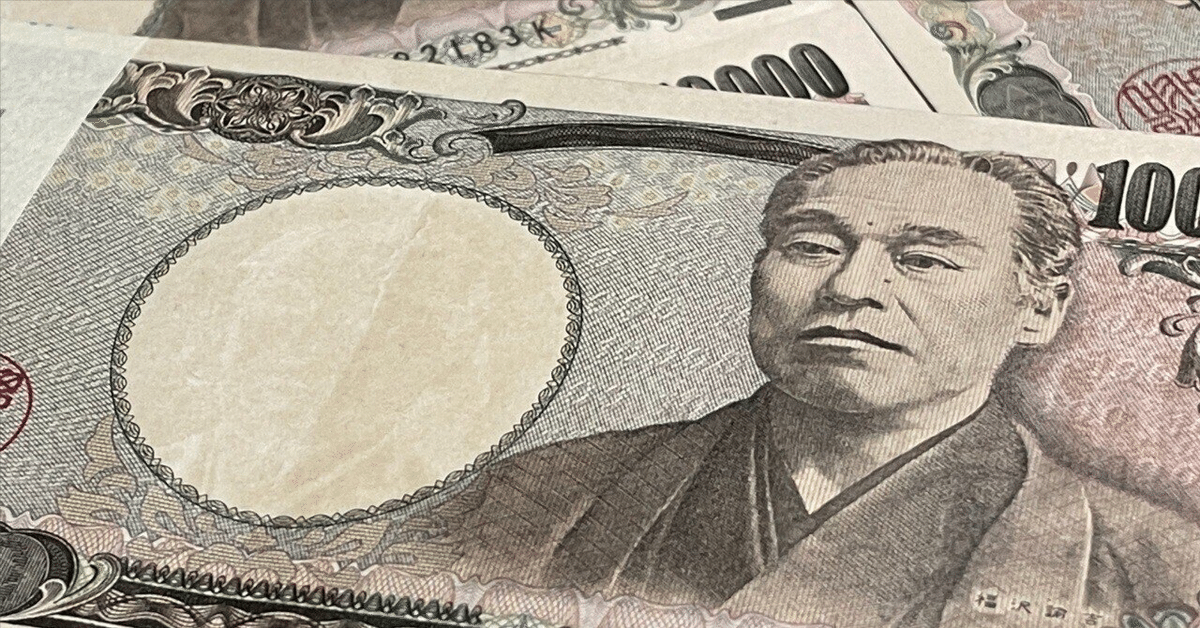
📙福澤諭吉.1888.「日本男子論」(段落34/ 全42段落)
✏️福沢諭吉「日本男子論」翻訳(旧仮名遣いからAIと意訳翻訳口語訳)
🔗前回までの参考リンク↓
https://note.com/wokingmom21/n/ne23ac076956d
【標準日本語、敗戦後版】
福澤諭吉 『日本男子論』. 1888. 段落34
日本男子の節操のなき振る舞いを放置していること自体にも、我々誰もが嫌悪感を抱くべきものだ。なのに古来の風習として、日本では男性の不品行の醜悪さを自らが認識も恥じることも知らずに生きている。上流社会では 「風流な才子 」などと呼んだり、下層社会では 「色は男の甲斐性 」俗な言い回しがあるが、実態は醜悪な淫行や放蕩をする者たちだ。悪行を犯す者達を、耳に心地よい名称で表現する風習は、一朝一夕にできたものではなく、なかなか根が深い。
「玉の盃そこなきが如し(外見は良いが、肝心なところが欠けていて使い物にならないもののたとえ. Weblio参照)」という言い回しは、識字や印刷技術が世に浸透する前の戦国時代から今日まで、庶民の間で知られてきた。武家の世の男性といえば、常に戦いに明けくれ、人としての内面価値を涵養する機会を持たなかった。しかし、後に徳川幕府時代の平和が訪れる。そこに儒教が台頭し始めた。それは古くから伝わる中国の流儀、しかし、その善悪を吟味もせずに江戸の人々の間で流布された。文化・文政期(紀元18世紀)になると、日本流の儒教は最盛期を迎えた。特に大都市では洒落(いきなこと、遊女)や放胆(無頓着さ)さを奨励する江戸風の儒教は、最悪の形で日本社会に浸透した。不品行の巣窟とも言えるほど悪い風習が日本の各地で横行する事態となったのだ。
徳川時代が終わり、明治維新後の新たな世の中になった後も、「洒落・放胆」つまり遊女と性交することの害悪に無頓着な気風は今なお止まない。西欧流の知識を学ぶものは、もはや儒教の門下生ではない。欧米流の宗教や道徳に従うほどではなくても、西欧国の人々と接し、彼らの言葉に耳を傾け、書物を読み、彼らの風俗や習慣を観察すれば、表面的な理解を得ることはできるはずだ。その過程で、日本と全く異なるものを認識し、大きな悟りを得て自己を刷新することは十分可能だ。そして儒教的な遊女との無頓着な淫行をやめ、紳士としての正しい振る舞いに立ち返ることができるはずだ。
しかし、西欧流を気取る日本人男性の中には、心の中や私的な行動だけは日本古来の習慣を続ける者がいる。無頓着な買春行為や不品行から自ら脱却せず、本当の紳士になれぬ者が多い。社会一般の下俗な慣習に支配され、醜いものを醜いと見抜く明晰さに欠けているのだろうか。あるいは「有心故造(心にたくらみがあって、わざと悪行を働くこと)」なのだろうか。いずれにせよこのような男たちを、憎むべきというより、その低能と卑怯ぶりを憐れむことしかできない。
【DeepL Pro 訳版】
Nihon Danshi Ron: How Male Citizens Must Live in Modern Japan (by Yukichi Fukuzawa. 1888) - Installment 34
The fact that we are allowing the unprincipled behavior of Japanese men to continue unchecked is something that all of us should feel disgusted by. Yet, as an ancient custom, in Japan we live without recognizing or being ashamed of the ugliness of men's misconduct. In high society, they are called “refined and talented men”, while in lower society, there is a common saying that “color is a man's worth”, but in reality, they are people who commit ugly acts of adultery and debauchery. The custom of describing people who commit evil acts with names that sound pleasant to the ear did not come about overnight, and has deep roots.
The phrase “like a cup with a hole in the bottom (a metaphor for something that looks good on the outside but is useless because it is missing something important inside)” has been used by the general public since the Warring States period, before literacy and printing technology had spread throughout society, right up to the present day. Men in the warrior class were constantly at war, and never had the chance to cultivate their inner values as human beings. However, later, peace came during the Tokugawa Shogunate period. At that time, Confucianism began to rise to prominence. It was spread in the Chinese style, without deeply considering right and wrong. During the Bunka and Bunsei periods (18th century AD), Japanese-style Confucianism reached its peak. In particular, in the major cities, Confucianism, which encouraged a sense of style (ikki, or 'sophistication') and a carefree attitude (bōdan, or 'carelessness'), took hold in Japanese society in its worst form. It became a situation where bad customs, which could be called a den of misconduct, ran rampant in every region.
Even after the end of the Tokugawa period and the new world that came after the Meiji Restoration, the spirit of “wantonness and abandon”, that is, the indifference to the good and bad of having sex with prostitutes, has not stopped. Those who learn Western-style knowledge are no longer disciples of Confucianism. Even if you don't go as far as to follow Western religions and morals, if you interact with people from Western countries, listen to their words, read their books, and observe their customs and habits, you should be able to gain a superficial understanding. In the process, it is entirely possible to recognize things that are completely different from Japan, gain great enlightenment, and renew yourself. And they should be able to stop their thoughtless promiscuity with Confucian-style prostitutes and return to proper behavior as gentlemen.
However, there are some Japanese men who pretend to be Westernized, but who continue to follow ancient Japanese customs in their hearts and private behavior. Many of them are unable to become true gentlemen because they do not break free from thoughtless acts of prostitution and misconduct. Are they controlled by the vulgar customs of society in general, and lacking in the clarity to see the ugly for what it is? Or is it “having a plan in mind and deliberately committing evil deeds”? In any case, rather than hating these men, we can only pity their low intelligence and cowardice.
【旧仮名遣い】
福澤諭吉 『日本男子論』. 1888. 段落34
日本男子の内行不取締は、その実じつにおいて既に厭いとうべきもの少なからざるなおその上に、古来習俗の久しき、醜を醜とせずして愧はずるを知らざるのみならず、甚だしきに至りて、その狼藉ろうぜき無状ぶじょうの挙動を目して磊落らいらくと称し、赤面の中に自おのずから得意の意味を含んで、世間の人もこれを許して問わず、上流社会にてはその人を風流才子と名づけて、人物に一段の趣おもむきを添えたるが如くに見え、下等の民間においても、色は男の働きなどいう通語を生じて、かつて憚はばかる所なきは、その由来、けだし一朝一夕のことにあらず。我が王朝文弱の時代にその風を成し、玉たまの盃さかずき底なきが如しなどの語は、今に至るまで人口に膾炙かいしゃする所にして、爾後じご武家の世にあっては、戸外兵馬の事に忙せわしくして内を修むるに遑いとまなく、下って徳川の治世に儒教大いに興りたれども、支那の流儀にして内行の正邪は深く咎とがめざるのみならず、文化文政の頃に至りては治世の極度、儒もまた浮文ふぶんに流れて洒落しゃらく放胆を事とし、殊に三都の如きはその最も甚だしきものにして、儒者文人の叢淵そうえん即ち不品行家の巣窟そうくつとも名づくべき悪風を成し、遂に徳川を終わりて明治の新世界に変じたれども、いわゆる洒落放胆の気風は今なお存して止やまず、かの洋学者流の如き、その学ぶ所の事柄は全く儒林の外にして、仮令たとえ西洋の宗教道徳門に入らざるも、その国人に接し、その言を聴き、その書を読み、その風俗を視察するときは、事の内実はともかくも、その表面のみにても、これを日本の事態に比して大いに異なる所あるを発明し、大いに悟りて自ら新たにし、儒流洒落しゃらくの不品行を脱却して紳士の正せいに帰すべきはずなるに、言行一切いっさい西洋流なるにもかかわらず、内行の一点に至りては純然たる旧日本人の本色を失わざるもの多し。けだし社会一般の習俗に制せられて、醜を醜とするの明めいを失うたるものにして、あるいはこれを評し有心故造ゆうしんこぞうの罪にあらず、無心に悪を犯すの愚というも可ならん。この点より見れば悪にくむべきにあらず、むしろ憐れむべきのみ。
🥸 the "note" author's question:
Who was it that “deliberately failed to act” for 150 years? No modern Japanese translation published? Why?
There are parts of the Japanese text written in the old kana system that are completely incomprehensible. What on earth is
👉THIS...?(a website link embedded)
and
👉THAT?(another website link embedded)
Even with the audible.com audio, it's completely incomprehensible to modern Japanese language speakers. This is because the tense, subject and object are unclear under old Japanese kana writing system. It appears that post-war Japan, for 80+ years, even one professor, admitted the words of Yukichi Fukuzawa to recognize that “women are also people” after his passing.
Was the 150+ years of a school system that has been receiving subsidy money, funded by tax revenue? YES.
Were the the majority of schools' decision makers women? NO.
However, at this point, non idiotic tax payers do understand that, certain Fukuzawa's old writings were excluded from being the subject of translation, so that modern Japanese readers can NOT access.
Was it the purpose of for those involved in "inaction to translate"?
Why did Japanese scholars “deliberately" NOT fund to translate this Yukichi Fukuzawa's writing into modern Japanese”?
上記英文の和訳:現代日本語訳なき150年、『不作為』したの、誰?目的は?
旧仮名遣いの和文は不明瞭。なんだこりゃ。。。。Audible音声でも更に理解不能。時制、主語、目的語が不明瞭ゆえ。戦後整備の標準日本語に、80年間も!一人の教授も!「女も人」とした福澤諭吉の言葉を諭吉逝去後に戦後日本が全力否定、したと見える。納税当事者として納得すべきか。税が原資の補助金を受け取る学校法人で、女性以外の意思決定者の過半を占め「サボろう、雑用係の「女を家(=『嫁』の部首を調べて見てね👀)において、楽しく楽ちんしたら、いいね👍」と現代語訳を敢えて阻止した150年だったのかね?ご関係者らの不作為(=「行為の一種、敢えて積極的な行動をしないこと」. 広辞苑 第7版. 岩波書店)ありか。現代語訳を「わざとしなかった」歴史のHow and Why 😭😅?
to be continued….
📕Reference & for your further understanding…..
福澤諭吉.『福沢諭吉作品集・44作品⇒1冊』 福沢 諭吉 (著) 形式: Kindle版
Naoko Nishizawa. Nihonfujin-ron. Keio University Press, 2003. Tokyo, Japan.
https://www.keio-up.co.jp/np/isbn/9784766408867/
Helen Ballhachet. The Thought of Fukuzawa, Volume 3. Keio University Press. 2017. Tokyo, Japan.
7,700円(2024年09月14日 10:45時点 詳しくはこちら)
https://www.aozora.gr.jp/cards/000296/files/47293_34170.html .
Accessed on July 1, 2024.
Yukichi Fukuzawa. Fukuzawa Yukichi Kazoku-ronshu. Tokyo. Iwanami Shoten Publishers. 1999. Tokyo, Japan
Jiji-shinpo. Tokyo. Jiji-shinpo. January 13-January 24, 1888. Tokyo, Japan
https://www.keio-up.co.jp/kup/webonly/ko/jijisinpou/1.html
Yukichi Fukuzawa. Fukuzawayukichi-senshu Number 9. Iwanami Shoten Publishers. 1981. Tokyo, Japan.
Kokuritu Minzoku Hakubutsu-kan. Seisa no Nihon-shi (i.e. Gender Inequality in Japanese History). Shueisha International. 2021. Tokyo, Japan
Change in Japan Civil Code “Article 900 (4) is deleted”
https://www.moj.go.jp/MINJI/minji07_00143.html
Yasutoshi Kita. Fukuzawa Yukichi - Kuniwo sasaete kuniwo tayorazu. Kodansha. 2008. Tokyo, Japan.
↑ Audible/ audio book - what the heck is this recording?! Even a literate Japanese national can NOT understand the original wording of Yukichi Fukuzawa….. Modern Standard Japanese is modified far from what it was in the early 20th century…(a murmur by the "note" author).
※ Translated using Deepl Pro function using DeepL.com website.
※ Cover picture created by yamamotoshinya, a "note" creator; thank him/her for sharing this photo for use.
この記事が気に入ったらサポートをしてみませんか?
